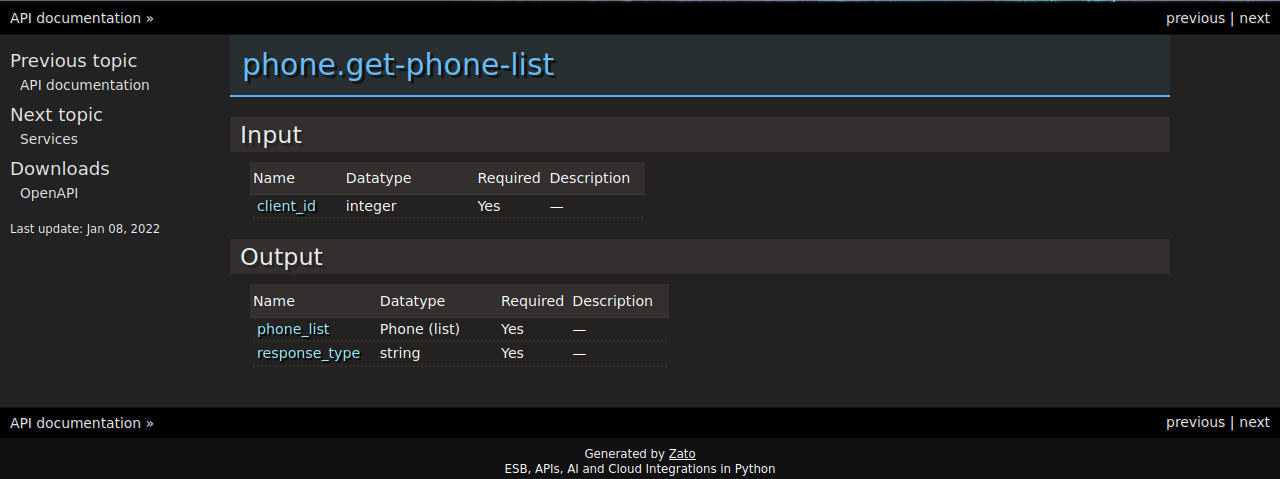Python OpenAPI and API specifications
- Services with models can be exported to OpenAPI or to full API specifications
- Note that your service does not to be a REST one for OpenAPI to work - e.g. if you have a service that is only accessed in background from a scheduler or only through WebSockets, its definition can be still exported
A sample business model to be implemented may look like this:

Here is a a sample service that fulfils this model. Note that we are skipping its actual implementation in the handle method because it does not influence the process of exporting it to OpenAPI or API specifications.
# -*- coding: utf-8 -*-
# stdlib
from dataclasses import dataclass
# Zato
from zato.common.typing_ import list_
from zato.server.service import Model, Service
# ###########################################################################
@dataclass(init=False)
class Phone(Model):
imei: str
owner_id: int
owner_name: str
# ###########################################################################
@dataclass(init=False)
class GetPhoneListRequest(Model):
client_id: int
@dataclass(init=False)
class GetPhoneListResponse(Model):
phone_list: list_[Phone]
response_type: str
# ###########################################################################
class GetPhoneDetails(Service):
class SimpleIO:
input = GetPhoneListRequest
output = GetPhoneListResponse
def handle(self):
# Skipped implementation
...
# ###########################################################################
OpenAPI
Use zato openapi from command line to export services to OpenAPI:
Invoke them in Postman or other OpenAPI-compatible tools:

Full API specifications
Use zato apispec from the command line to generate full API specifications, including both a static HTML site as well as OpenAPI.
Main page:

Details of a particular service:

Related topics
- Details of how to work with models
Schedule a meaningful demo
Book a demo with an expert who will help you build meaningful systems that match your ambitions
"For me, Zato Source is the only technology partner to help with operational improvements."
 — John Adams
— John Adams